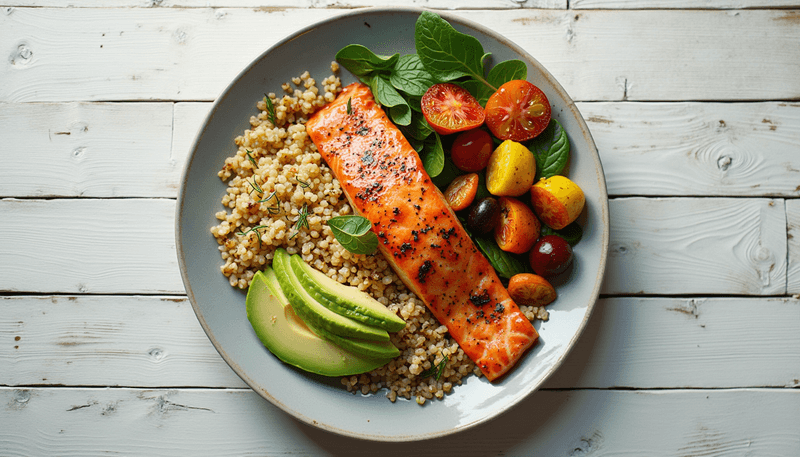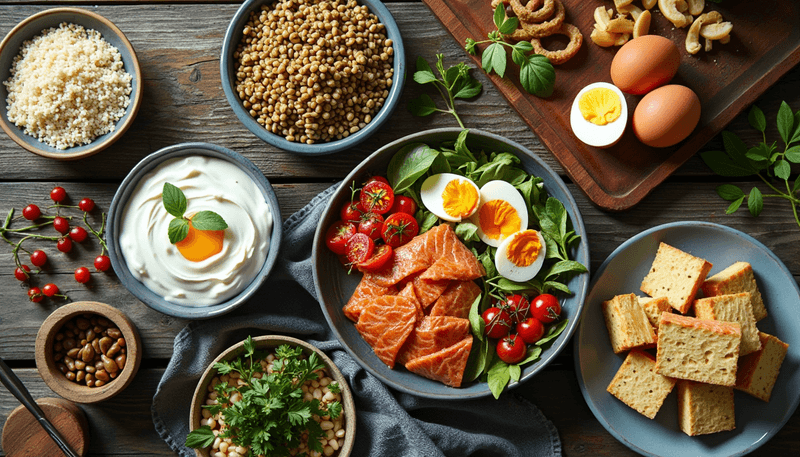Diet Tips For Your Menopausal Years

The journey through menopause brings unique nutritional needs that many women don't realize until they're deep in the transition. A recent study comparing urban and rural women's nutrition during menopause reveals fascinating insights about how our dietary choices impact our well-being during this significant life phase. As both a physician and someone who has navigated menopause myself, I'm excited to share practical wisdom that could transform your menopausal experience.
The Fat Factor: Finding Your Balance
The research highlights an intriguing pattern: both urban and rural women consumed more fat than recommended - about 30-31 grams daily versus the suggested 25 grams. While some fat is essential, excess intake during menopause can complicate weight management.
Have you noticed changes in how your body responds to fatty foods since entering menopause?
Think of your body's fat processing like a busy highway during rush hour. Before menopause, your estrogen helped direct traffic smoothly. Now, with lower hormone levels, that traffic regulation isn't as efficient. This means those extra fat calories are more likely to create "traffic jams" in the form of unwanted weight gain.
Practical steps to manage fat intake:
- Replace cooking oils with measured amounts using a spray or brush
- Choose lean proteins like fish and legumes over fatty meats
- Snack on nuts and seeds in portion-controlled amounts
- Use avocado as a spread instead of butter
The Power of Protein Timing
The study revealed something unexpected - while most nutrients were under-consumed, protein intake was actually optimal among both urban and rural women. This is excellent news since protein becomes increasingly important during menopause.
"Think of protein as the building blocks that help maintain your muscle mass when hormonal changes try to break it down."
Your muscles are like a savings account - regular deposits of protein help maintain your balance even when menopause tries to make withdrawals. Aim for 45-50 grams daily, spread across meals rather than loading up at dinner.
Smart protein strategies:
- Start your day with Greek yogurt or eggs
- Add lentils or chickpeas to your lunch salad
- Keep hard-boiled eggs or cottage cheese ready for snacks
- Include a palm-sized portion of protein at every meal
The Hidden Heroes: Micronutrients Matter
One concerning finding was the widespread deficiency in iron, zinc, and vitamin C across both urban and rural populations. These nutrients are particularly crucial during menopause for maintaining energy levels, immune function, and skin health.
Think of micronutrients as the maintenance crew for your body's operations. Just as a building needs regular maintenance to prevent deterioration, your body needs these nutrients to maintain optimal function during menopause.
Boost your micronutrient intake:
- Pair iron-rich foods with vitamin C sources for better absorption
- Include colorful vegetables at every meal
- Consider seasonal eating for maximum nutrient density
- Experiment with new vegetables and fruits regularly
Which of these nutrients do you think might be missing from your daily diet?
The changes brought by menopause don't have to derail your health journey. By making informed choices about our nutrition, we can navigate this transition with greater ease and confidence. Your body is adapting to new patterns, and your diet can be a powerful ally in this process.
Your next step: Choose one aspect of your diet to focus on this week - whether it's measuring your cooking oil, adding an extra serving of protein, or introducing a new vegetable to your meals. Small, consistent changes create lasting impact.
What one change will you commit to making in your diet this week?

Dr. Anya Sharma, MD
Dr. Anya Sharma is a board-certified gynecologist with over a decade of experience specializing in women's health and patient education. She graduated from Johns Hopkins School of Medicine and completed her residency in Obstetrics and Gynecology at a top hospital in New York City. With a passion for empowering women, Anya transitioned to content creation to provide accessible, evidence-based information on health topics relevant to mid-aged women. Her empathetic and pragmatic approach combines medical expertise with relatable insights, making her a trusted voice in the field.






